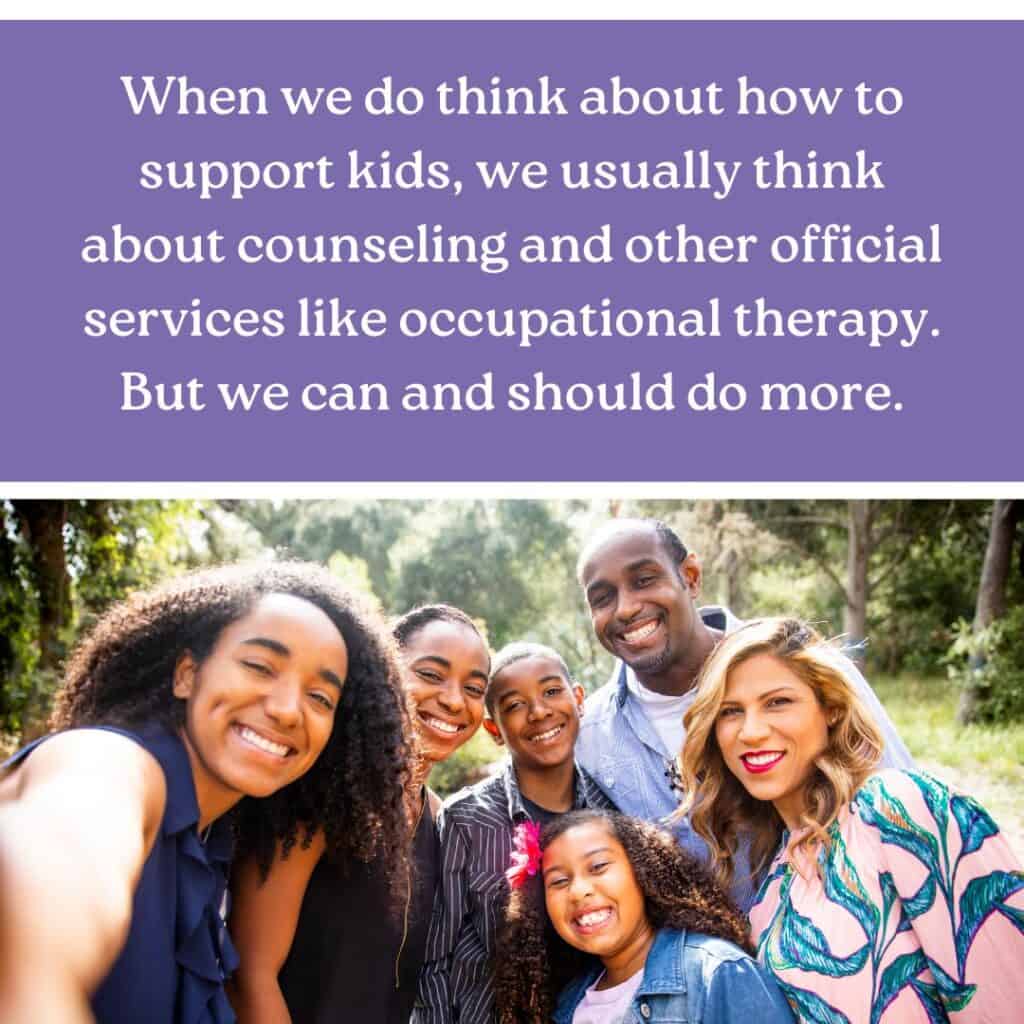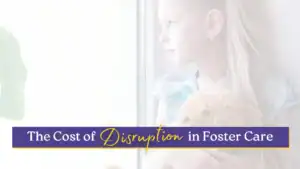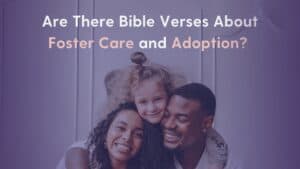When I think of how to support adoptive and foster kids, I remember working with a 9-year-old boy named Nathan in counseling. Nathan was in foster care. He had bounced around a few different foster care homes over the years but had been in a mostly stable and supportive situation for the past year. His foster parents had brought him to counseling because he was exhibiting symptoms of depression—low energy, feeling sad and irritable most days, having a hard time concentrating, and sleeping more than usual.
We did some good work together, but one of the things that always stuck with me was how socially isolated Nathan felt. Part of this isolation was related to the stigma he felt as a “foster kid.” He felt like he couldn’t be honest about his family situation or share that he was in foster care, even with his close friends. How do you talk about that on the playground at school, especially when peers make insensitive comments like, “What did you do? Did your parents not want you?”
Nathan wasn’t connected to any children who had been impacted by adoption or foster care, and he felt mostly alone in his experience. What I’ve learned as a therapist is that what kids can’t talk out, they act out.

Adoptive and Foster Kids Need Support Too!
Often, when we think about supporting adoptive and foster families, we think about supporting the parents. This is important because parenting is tough work! But we also need to consider how to support adoptive and foster kids.
When we do think about how to support kids, we usually think about counseling and other official services like occupational therapy. These types of services are important and critical for many kids. But we can and should do more.
3 Key Ways to Support Adoptive and Foster Children
Here are three key ways that you can help support the adoptive and foster children in your family:
1. Help Your Kids Build Relationships With Other Children Who Understand the Journey.
It is important for children impacted by adoption and foster care to connect with other kids who have had similar experiences and a similar journey. There is nothing worse than being alone in your pain. On the other hand, few things are more refreshing and restorative than being with someone who understands what you are going through and can offer much-needed support.
At our Replanted conference, we aim to offer “same here” moments for our parents—where they can share what they are going through and hear that other people understand where they are coming from. Our kids need “same here” moments as well. In our Replanted small groups, not only do the parents have time to connect with each other, but the children have time to connect with other kids on a similar journey. We hear time and time again from the kids who attend our groups that they love attending Replanted because they get to be with other kids who understand what they’ve been through, who are asking the same questions, and who are struggling with similar things.
Support and connection are critical for both parents AND kids. Are there support groups in your area where your kids could connect with other peers who have experienced foster care or adoption? Are there other foster or adoptive families you could connect with?
2. Connect Your Children With Mentors.
Mentors are critical for two key reasons. First, they provide a model or picture of what is possible in the future. If you see someone who was in your shoes succeed, it can give you greater confidence that you can do something similar. For a child impacted by adoption or foster care to be able to sit down with an adult adoptee or a former foster alum can be so validating. It’s a safe person who truly can understand and empathize with their experience. Connecting your child with someone with lived experience can be a game changer.
Second, it can be helpful for kids to have older kids or adults spend time with them and show an interest in their lives. We can’t give our kids everything as parents. We need a community around them to help build them up as they grow and mature. “Science shows that children who do well despite serious hardship have had at least one stable and committed relationship with a supportive adult. These relationships buffer children from developmental disruption and help them develop “resilience,” or the set of skills needed to respond to adversity and thrive.”[1] At our Replanted conference, we make it a point to hear from adult adoptees and foster alum. See if you can find an adult adoptee or foster alum in your community to invest in your child.

3. Build a Community That Looks Like Your Family.
I remember talking with an African American woman who was an adult adoptee. She had grown up in a mostly White community and church, where she and her brothers were often the only People of Color. She didn’t think too much about it growing up, but when she attended college in a nearby town that was more diverse, she realized something was missing from her growing-up years. Now, she was wrestling with issues related to her racial/ethnic identity, and she wished she’d had support for that growing up. “Why didn’t we live here [in the more diverse town] growing up?” she wondered.
Especially for transracial families, it can be helpful to build a community that looks like your family. Have diversity be a normal part of your family’s life and journey so your child doesn’t have to feel like they stick out. I have known families that have made decisions about jobs, churches, or where they live partly based on what kind of community would feel most comfortable for their children. This was a big step toward helping their kids feel comfortable about their identity and place in the family and community.
4. Language Matters.
When we talk about how to support adoptive and foster families, we mostly focus on the parents. Or if we do think about supporting the kids, it is mainly through more structured ways such as therapy or other types of services. While these aspects of support are helpful, it is also worthwhile to think about other avenues for supporting our kiddos. Let’s work together to support the whole family well.

[1] https://developingchild.harvard.edu/resources/supportive-relationships-and-active-skill-building-strengthen-the-foundations-of-resilience/















